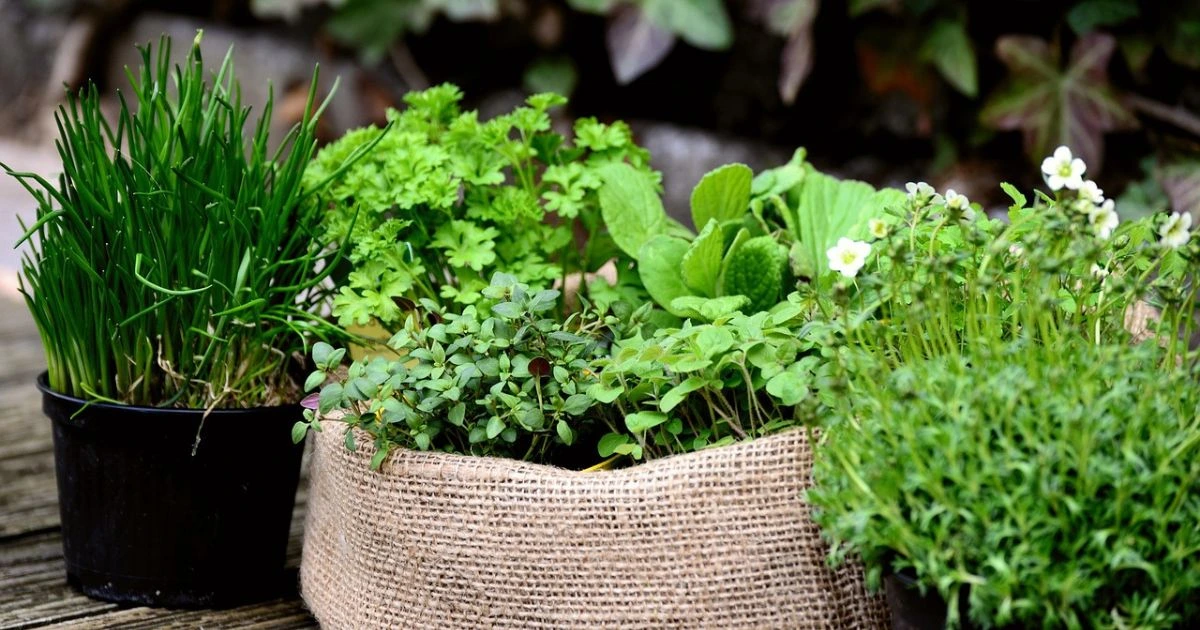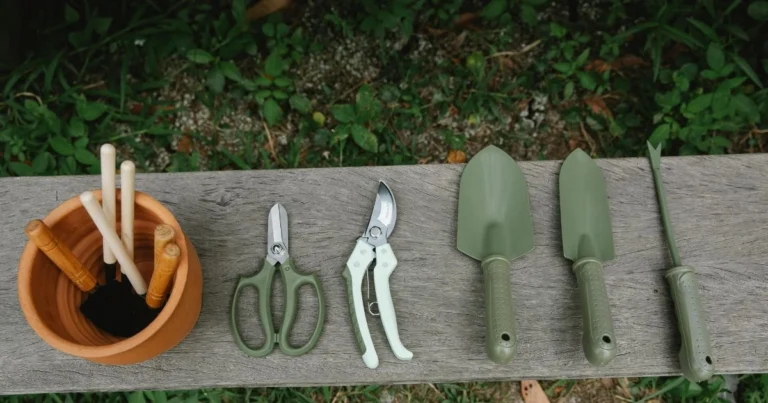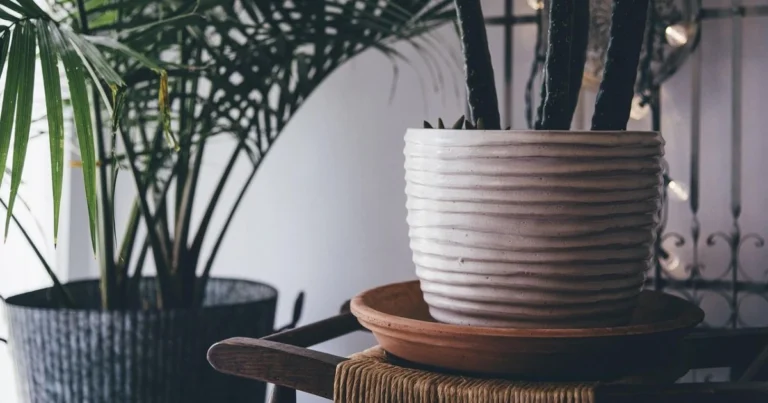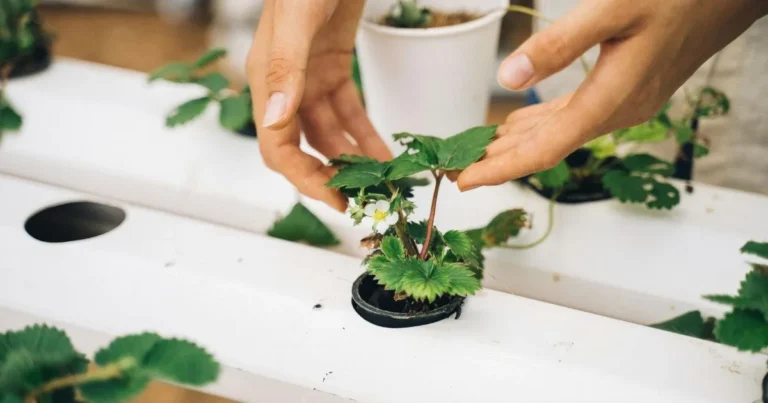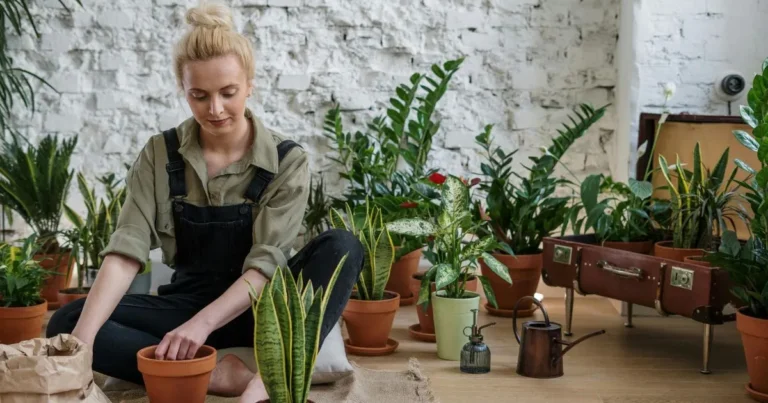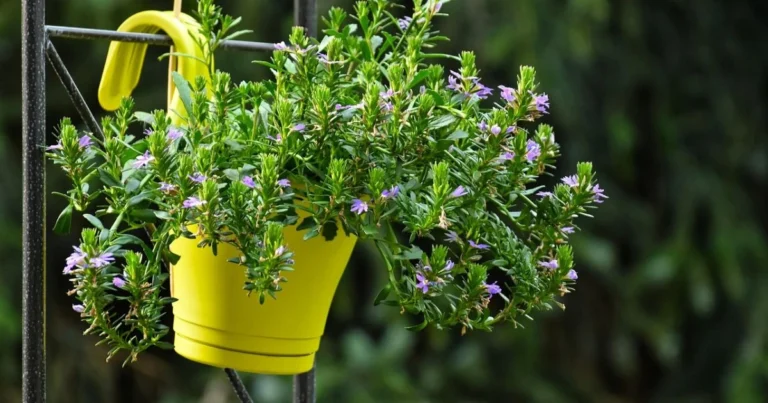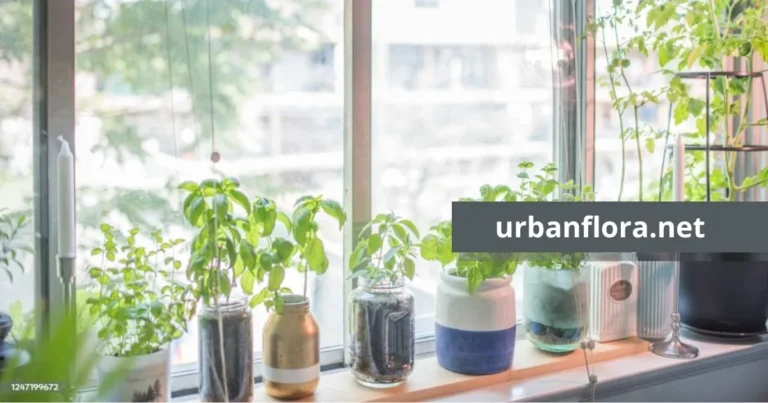5 Easy Herbs to Grow Indoors for a Healthier Home
Table of Contents
Introduction: Fresh Herbs, Fresh Home
Picture this: stepping into your home, greeted by the refreshing aroma of fresh herbs like basil, mint, or rosemary. Imagine the satisfaction of plucking a leaf directly from your indoor garden to add to a salad, tea, or dish you’re preparing. Growing herbs indoors isn’t just about adding flavor to your food—it’s about creating a healthier living space for you and your loved ones. These simple plants can improve air quality, reduce stress, and elevate the vibe of your home.
If you’ve ever wondered how to grow herbs indoors but thought it was too complicated or needed too much space, think again. In this article, we’ll introduce you to five of the easiest herbs to grow indoors, each offering its own set of benefits. No matter how much space you have, growing herbs indoors is not only doable, it’s enjoyable.
Why Grow Herbs Indoors?
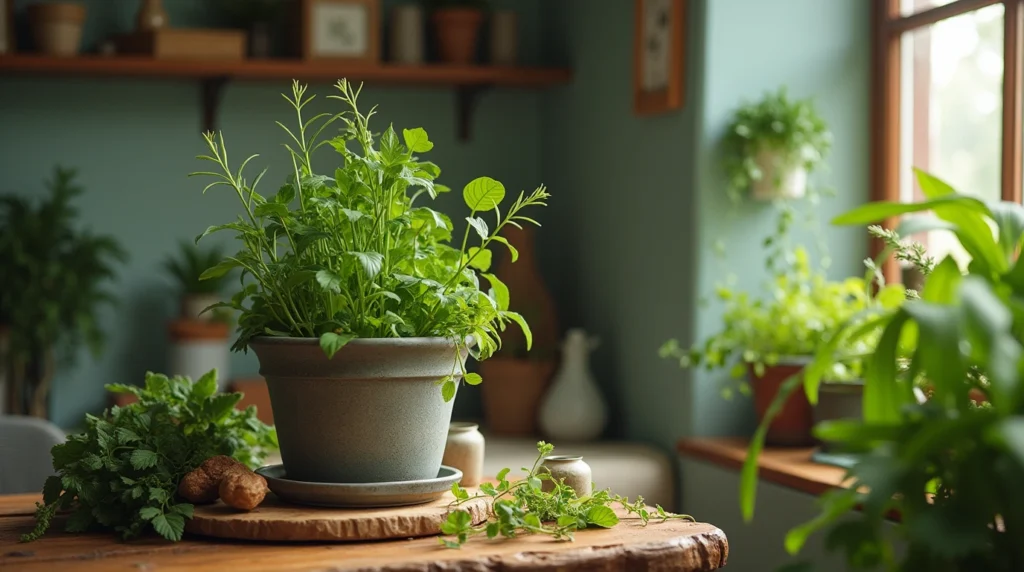
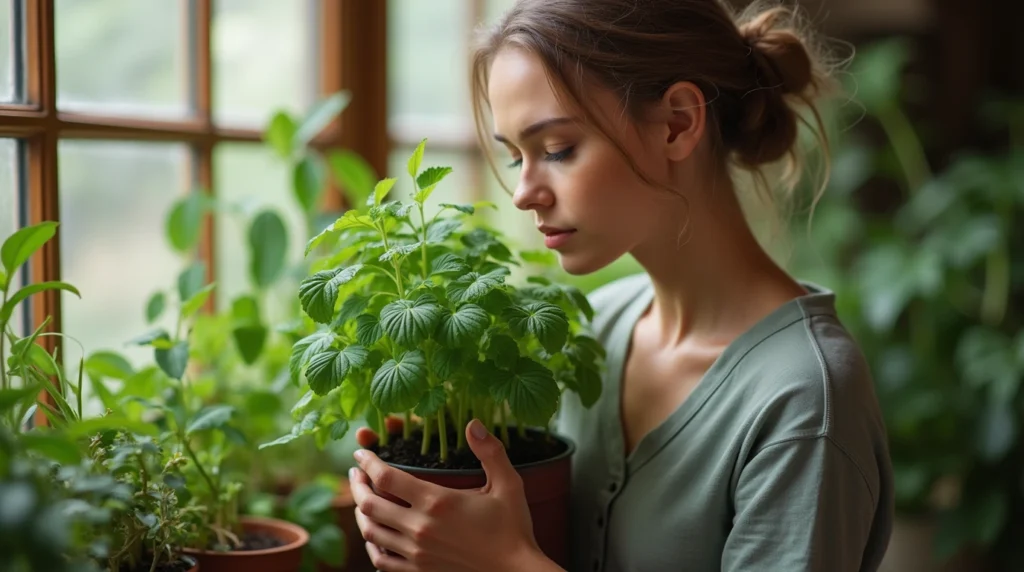
Health Benefits Beyond Taste
Herbs aren’t just tasty additions to your meals—they offer numerous health benefits, too. By growing your own herbs indoors, you’re not only elevating your dishes but also nurturing your well-being.
- Air Quality Improvement: Many herbs, like basil and rosemary, have been shown to purify the air by absorbing toxins and releasing oxygen. This can contribute to a healthier, more breathable home environment.
- Stress Reduction: The sight and scent of fresh herbs can promote a calm, peaceful atmosphere. Rosemary, in particular, has been associated with stress relief, mental clarity, and even improved memory.
- Natural Remedies: Growing your own medicinal herbs, such as mint for digestive issues or chamomile for sleep, gives you direct access to natural remedies right in your home.
Convenience and Freshness
Imagine being able to step into your kitchen and snip fresh herbs directly from your counter or windowsill. Indoor herbs allow you to enjoy fresh flavors all year long, whether it’s the height of summer or the dead of winter. Plus, it saves you from constantly buying expensive store-bought herbs that wilt quickly in the fridge.
You don’t need a massive backyard or even a large kitchen to get started. Indoor herbs are perfect for small spaces, apartments, or even windowsills. Growing them indoors gives you convenience at your fingertips.
The 5 Easiest Herbs to Grow Indoors
Now that you understand the benefits, let’s dive into the five easiest herbs to grow indoors. Whether you’re a seasoned gardener or a complete beginner, these herbs require minimal effort to thrive in your home.
1. Basil: A Flavorful Favorite
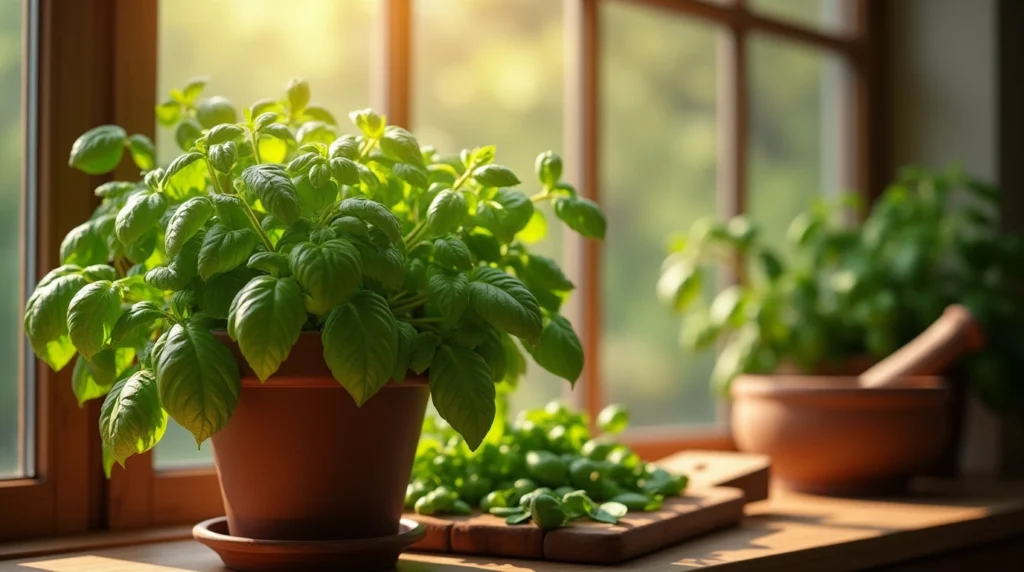
Basil is one of the most popular herbs to grow, and it’s ideal for indoor gardening. This aromatic herb is perfect for adding to dishes like pasta, salads, and even homemade pesto.
- Growing Tips: Basil needs at least 6 hours of sunlight daily, so place it on a sunny windowsill or near a south-facing window. It thrives in well-drained soil, so be sure to plant it in a pot with drainage holes.
- Watering: Basil likes to stay moist but not soaked. Water it regularly, but make sure the pot has good drainage to prevent root rot.
- Pruning: Regularly trim the top leaves to encourage bushier growth and prevent it from flowering too early.
- Health Benefits: Basil is rich in antioxidants, and its oil has antibacterial properties. It’s also great for reducing inflammation and improving digestion.
2. Mint: A Cool and Refreshing Herb
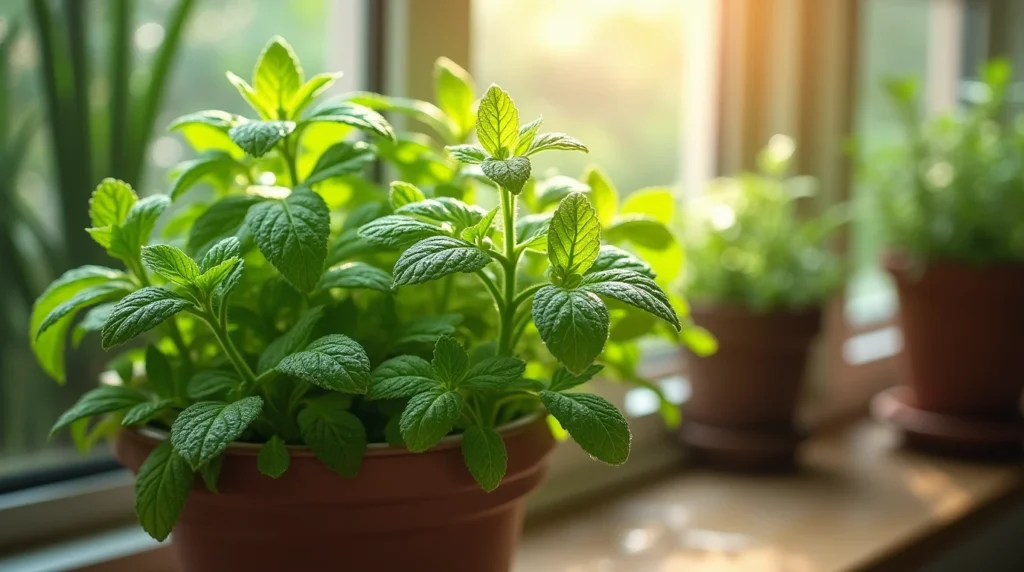
Mint is one of the easiest herbs to grow indoors, and it adds a burst of freshness to a variety of dishes. It’s perfect for tea, smoothies, or garnishing desserts.
- Growing Tips: Mint thrives in moderate sunlight, but it’s quite adaptable to different light conditions. Make sure to keep it in a pot, as mint is known to spread quickly and can overtake other plants.
- Watering: Mint loves moisture, so be sure to keep the soil evenly moist. It’s also very tolerant of humidity, making it an excellent choice for kitchens or bathrooms.
- Pruning: Regular trimming is necessary to keep it from becoming too leggy. Harvest the leaves frequently to promote fresh growth.
- Health Benefits: Mint is well-known for its digestive benefits. It can also help relieve headaches and soothe muscle pain when used as an oil or in tea.
3. Rosemary: The Fragrant Power Herb
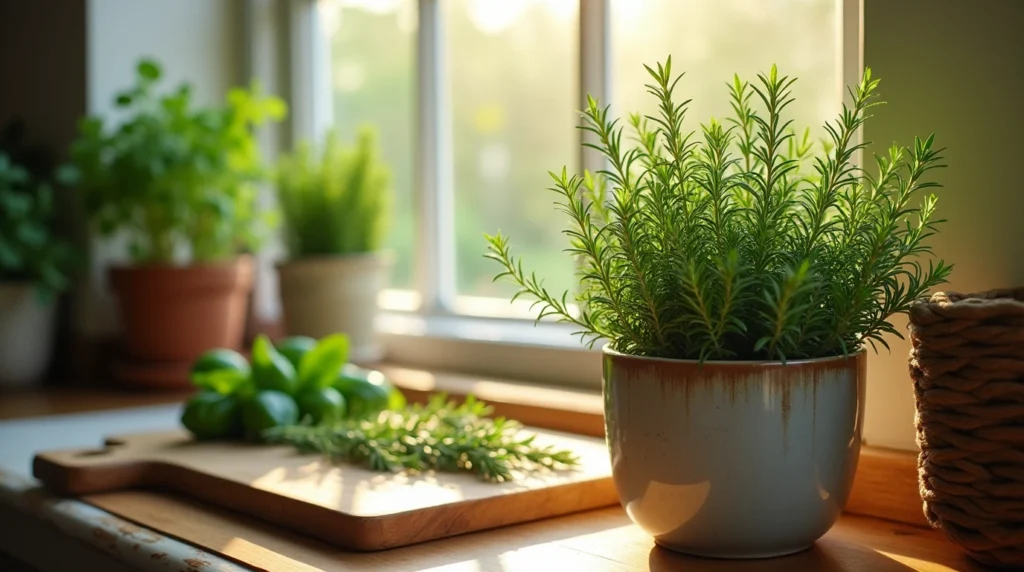
Rosemary is not only great for seasoning meats and soups, but it also provides numerous health benefits, including mental clarity and stress relief.
- Growing Tips: Rosemary needs around 4-6 hours of direct sunlight, so place it in a sunny window. It’s a hardy herb that prefers dry soil, so avoid overwatering.
- Watering: Rosemary doesn’t require a lot of water. Let the soil dry out between waterings to avoid root rot.
- Pruning: Rosemary grows well with regular pruning. Trim it to keep it bushy and encourage new growth.
- Health Benefits: Rosemary has anti-inflammatory properties and is known to improve memory and reduce anxiety. It’s also an excellent herb for boosting the immune system.
4. Parsley: The Versatile Herb
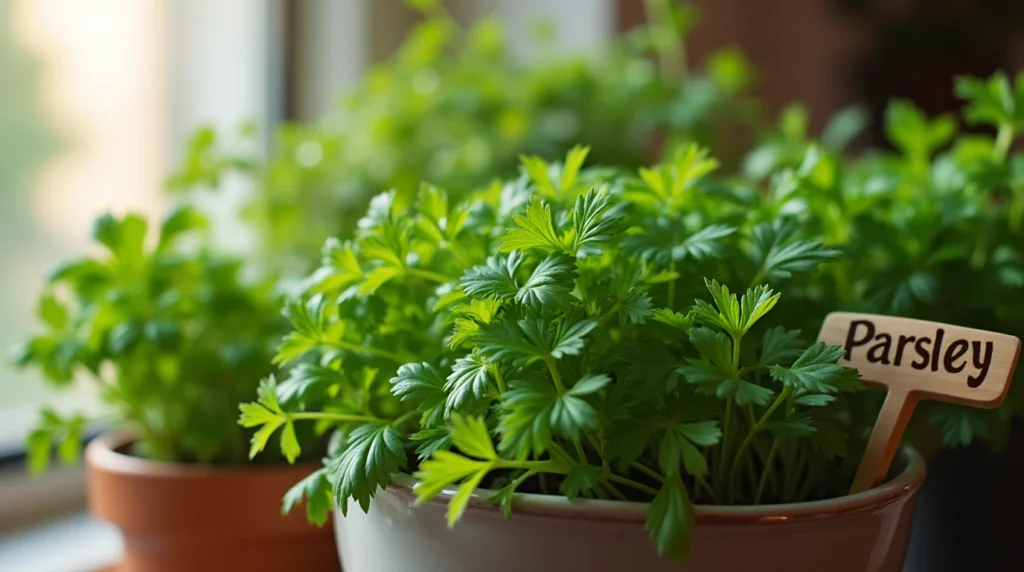
Parsley is a culinary favorite and a must-have in any indoor herb garden. It’s easy to grow, nutritious, and adds a pop of color to your indoor garden.
- Growing Tips: Parsley prefers indirect sunlight, making it perfect for areas that don’t receive direct sun. It grows well in rich, moist soil.
- Watering: Keep the soil moist but not waterlogged. Make sure the pot has proper drainage to prevent water from accumulating at the bottom.
- Pruning: To encourage continued growth, trim the outer leaves regularly. You can also harvest the inner leaves as they grow.
- Health Benefits: Parsley is a rich source of vitamins A, C, and K. It also contains antioxidants and is known for its ability to freshen breath and support healthy digestion.
5. Chives: A Simple Herb with Big Flavor
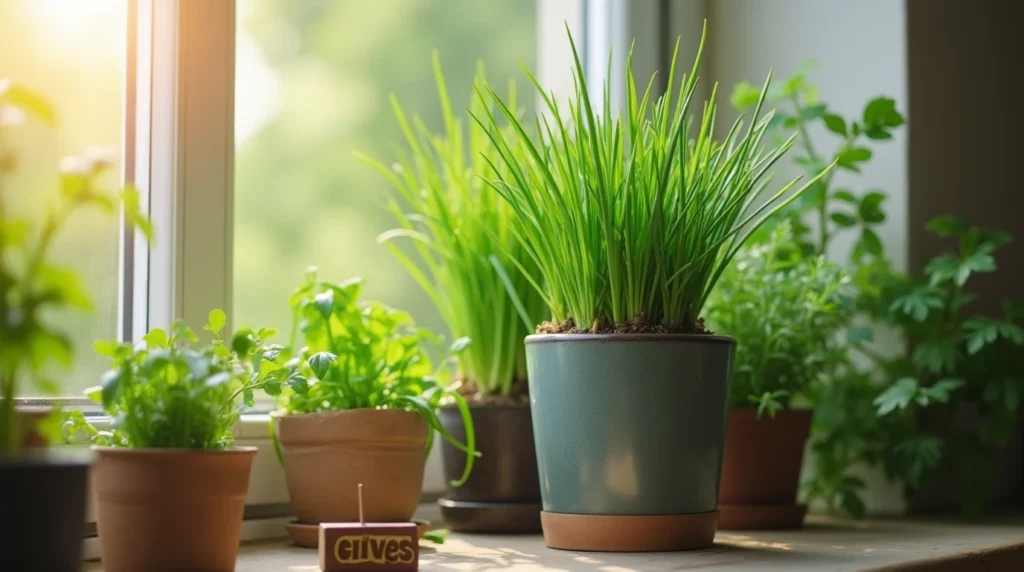
Chives are a versatile herb that can be used in everything from salads to soups. They’re easy to grow and require minimal attention.
- Growing Tips: Chives do well in partial sunlight and prefer slightly moist, fertile soil. They don’t need a lot of space, making them ideal for windowsills or small containers.
- Watering: Chives don’t like to be overwatered, so make sure the soil drains well. Water them when the top of the soil feels dry.
- Pruning: Snip off the leaves regularly to keep the plant looking neat and encourage fresh growth.
- Health Benefits: Chives are packed with vitamin K and also contain antibacterial properties. They can help with digestion and improve overall immune health.
Urban Gardening Tips for Growing Herbs Indoors
Maximizing Space in Small Areas
Urban living often means limited space, but that shouldn’t stop you from growing your own indoor herb garden. Here are some space-saving tips:
- Vertical Gardens: Use shelves, hanging planters, or wall-mounted containers to grow herbs vertically. This maximizes your space and creates a visually appealing garden.
- Windowsill Gardens: A windowsill is the perfect spot for small herb pots. It provides direct sunlight and easy access to your herbs.
- Use Compact Containers: Choose small, lightweight pots that are easy to move around. Look for self-watering planters to reduce maintenance.
Container Gardening for Indoor Herbs
When growing herbs indoors, containers are essential. Here’s what to keep in mind:
- Drainage: Always choose pots with drainage holes to prevent water from accumulating at the bottom and causing root rot.
- Size: Select containers that are large enough to allow your herbs to grow without being cramped. A 6-8 inch diameter pot is ideal for most herbs.
- Soil: Use a well-draining potting mix designed for herbs or vegetables. Do not use garden soil, as it may be too dense and doesn’t drain well.
Best Indoor Locations for Your Herb Garden
Finding the right spot in your home is crucial for growing healthy herbs. Here’s where to place your herbs:
- Sunny Windowsills: Choose a south or west-facing window that gets plenty of natural sunlight.
- Near a Light Source: If you don’t have sufficient natural light, consider using grow lights to supplement.
- Avoid Drafty Areas: Keep your herbs away from cold drafts or hot air vents, as they can damage the plants.
Conclusion: Your Indoor Herb Garden Awaits
Herbs to grow indoors is a rewarding and beneficial experience. With just a little effort, you can enjoy fresh herbs year-round, adding flavor and health benefits to your meals and your home. Whether you’re an experienced gardener or just starting, these five easy herbs are the perfect way to kick off your indoor gardening journey.
Don’t let limited space or experience hold you back—take the first step toward creating your own indoor herb garden today. Your home (and your taste buds) will thank you!

